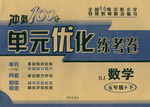题目内容
Conflict Resolution(解决)
Conflict is a normal part of any healthy relationship. After all, two people can’t be expected to agree on everything all the time. 1.
Conflicts may be resolved in positive or negative ways. When they’re handled in a positive way, they provide an opportunity to strengthen the bond. 2. The following is a practical five-step process for conflict resolution.
◆Agree that you disagree. Make clear the issue that is causing the disagreement. Answer the question “What is this disagreement about?”
◆Take turns talking and listening. Use talking and listening skills to have a conversation about the problem. 3. Each person should also have an opportunity to listen to the other person’s point of view.
◆Restate what you hear. Reflect what the other person says to figure out his or her thought and feelings.4.
◆Come up with a solution. Think of ideas that may solve the problem. You both should agree on the solution you choose.
◆5. If you are unable or unwilling to reach a solution, contact an unbiased(无偏见的)person who can offer objective and practical suggestions.
A. Get outside help if you need it.
B. State your point of view to others.
C. Ask questions if you don’t understand.
D. But when mismanaged, they can damage a relationship.
E. Each person should have an opportunity to say what he thinks.
F. Learning how to resolve conflicts helps relationships run more smoothly.
G. And when handled in a respectful way, they contribute to the relationship.
 云南师大附小一线名师提优作业系列答案
云南师大附小一线名师提优作业系列答案 冲刺100分单元优化练考卷系列答案
冲刺100分单元优化练考卷系列答案
